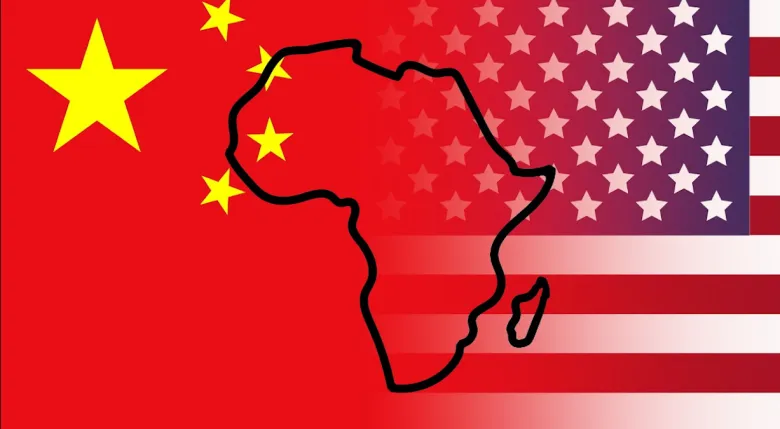In a world gradually moving beyond the dominance of a single global power, Africa finds itself in a uniquely strategic position. The continent sits at the crossroads of competing interests from the United States, China, and Russia, yet it also holds some of the most decisive assets of the twenty-first century—vast reserves of critical minerals, enormous solar and wind potential, and a market of more than 1.7 billion people. But Africa’s future will not be shaped by the intensity of international attention; it will be shaped by its ability to channel this competition into partnerships that genuinely advance education, development, and local industrialisation, rather than allowing itself to become another battleground for proxy rivalries.
For years, global analyses have portrayed Africa as a passive victim of great-power competition, but the reality emerging today is far more nuanced. From Nairobi to Accra, and from Casablanca to Lusaka, African capitals are learning to treat geopolitical rivalry as an opportunity—to diversify partners instead of relying on a single patron, as was common in previous decades. This shift comes at a moment when global demand for lithium, cobalt, and copper is projected to surge by between 30% and 500% over the next two decades, according to the International Energy Agency. It is a transformation that places Africa at the heart of the new green-energy economy.
This new context enables the continent to move from being a “raw-material supplier” to potentially becoming the architect of its own industrial future—on one condition: diversifying partnerships, increasing local value addition, and rebuilding vocational and technical education in line with the emerging green-minerals economy. Such a trajectory does not require political alignment with any of the major powers. Instead, it demands a balanced economic philosophy that engages Washington, Beijing, and Moscow while simultaneously opening the door to a different category of partners—those who prioritise institutions, skills, human capital, and long-term capacity building.
Countries such as Spain, Japan, India, and South Korea have begun to stand out in this regard. India is investing in digital education and solar energy across Kenya, Rwanda, and Tanzania. Japan is expanding industrial training programmes through JICA initiatives in Ethiopia and Ghana. South Korea is carving out space in light manufacturing and technology, while Spain has become a leading actor in renewable-energy projects across both North and Southern Africa. These states do not carry the heavy geopolitical baggage of the major powers; instead, they offer what African citizens consistently seek: training, knowledge transfer, and educational partnerships.
Alongside them, Canada and Australia remain among the most influential examples of countries African governments choose to collaborate with not out of political loyalty but because they provide what the continent lacks: responsible mining investment, technology transfer in green minerals, technical-education pathways, and support for local manufacturing.
Canada, for instance, operates nearly 100 mining companies across Zambia, the DRC, and South Africa, with investments exceeding $37bn. Australia’s presence spans more than thirty countries, contributing to transport and processing corridors such as the Lobito Corridor linking Angola, Zambia, and the DRC—an emerging alternative route with the potential to break long-standing logistical monopolies.
Yet the real foundation of these partnerships is not economic alone—it is educational. Africa does not simply need new factories; it needs a new generation capable of working in them. This is why technical training, university partnerships, and integrating education into global value chains form the backbone of the continent’s emerging strategic posture. Whether through renewable-energy institutes in Morocco, mineral-refining academies in Namibia, or programmes training 10,000 young people in Ghana and Rwanda in battery technologies and e-waste recycling, the continent is building something no single geopolitical power can deliver: self-reliance in skills.
If the African Continental Free Trade Area (AfCFTA) has laid the foundation for a unified continental market, the next step must be a knowledge-driven one: harmonising standards in technical education, linking vocational training to continent-wide projects, and enforcing minimum local-value-addition requirements before minerals are exported. Such reforms could raise the value of Africa’s mining sector from $70bn today to over $120bn within the next fifteen years, according to World Bank projections—provided education is restructured to align with development.
At this juncture, Africa does not need to choose between Washington, Beijing, and Moscow. What it needs is the freedom to choose what suits its people. Long-term economic stability will not come from a single geopolitical alignment but from a diverse network of partnerships spanning Eastern Europe, Japan, India, South Korea, and the rising economies of Latin America, where countries such as Chile and Brazil are developing highly successful models of local mineral processing and green-industrial policy. When coupled with strong education systems, such balanced engagement can shift Africa from being a stage for global competition to a strategic actor capable of setting its own terms.
Ultimately, Africa is not merely a space upon which others compete. It is a continent with the resources, talent, and ambitions to redefine its place in a multipolar world. And with every step it takes to strengthen education, expand local value creation, and cultivate a wide spectrum of partners, it moves closer to becoming not a follower but a partner of choice—and not a participant in others’ strategies, but the author of its own.
Dr Marwa El-Shinawy — Writer and Academic

